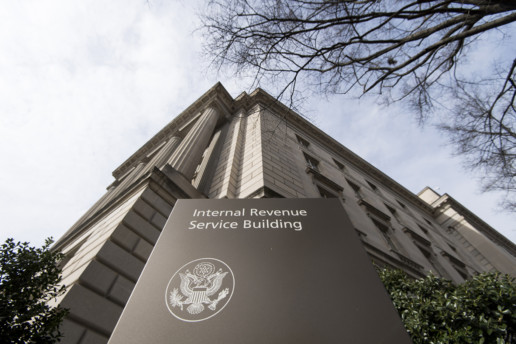The Saxon Advisor - March 2020
Compliance Check
what you need to know
Section 6055/6056 Reporting (Electronic Filing Deadline). Applicable large employers (ALEs) that sponsor self-insured health plans are required by Internal Revenue Code Sections 6055 and 6056 to report information about the coverage to the IRS yearly. IRS Forms 1094-C and 1095-C are used to report coverage information. March 31, 2020, is the deadline to submit these forms if employers are filing electronically.
COBRA General Notice. Employers who provide group health plans must provide a written General Notice of COBRA rights to all covered employees and spouses (if applicable). This notice must be provided 90 days after health plan coverage begins.
Summary Plan Description (SPD). Employers who offer group health plans that are subject to ERISA must provide Summary Plan Descriptions (SPD) to employees who newly enrolled at the beginning of the plan year by March 31, 2020.
Form 1099-R (Electronic Filing Deadline). Employers must file Form 1099-R with the IRS by March 31, 2020, if they are filed electronically.
Form 5330 Excise Tax Return. The Form 5330 excise tax return and payment for excess 2018 ADP/ACP contributions are due March 31, 2020.
Excess Contribution Refunds (over IRS limit). April 15, 2020 is the deadline to return excess retirement plan contributions for elective deferrals exceeding the 402(g) limits.
In this Issue
- Upcoming Compliance Deadlines
- Paving the Road to a Successful Portfolio Featuring Brian Bushman
- Upcoming Saxon U Webinar: Employee Navigator Workshop with Jake Meyer
- Fresh Brew Featuring Jake Meyer
- #CommunityStrong: American Heart Association Heart Mini Fundraising & School Donation Drive
Employee Navigator Workshop
Join us for this interactive and educational Saxon U webinar with Jake Meyer, Saxon Financial Services, as we walk you through certain aspects of Navigator and teach you how to use the most common features.
Paving the Road to a Successful Portfolio
Bringing the knowledge of our in-house advisors right to you...
Determining a proper asset allocation is an important first step in creating your portfolio and planning how it will grow in the future. Asset allocation is the process of diversifying your investments into different asset classes based on the investor’s time horizon, their goals and how much risk they can tolerate.
“People always ask me what they can invest in that will make them a lot of money without the chance of losing any,” said Brian Bushman, Saxon Financial Advisor.
Fresh Brew Featuring Jake Meyer
“Educate your employees about their benefits. The more they understand them, the more they will realize how big of a benefit they are.”
This month’s Fresh Brew features Jake Meyer, an Account Executive at Saxon.
Scott’s favorite brew is Rhinegeist Truth, a local Indian Pale Ale from the Rhinegeist Brewery in Cincinnati, Ohio.
Jake doesn’t have a particular snack that he eats when sipping on his favorite brew. He instead likes to enjoy the hops in his favorite IPA.
This Month's #CommunityStrong:
American Heart Association Heart Mini Fundraising
This March, the Saxon team and their families teamed up to raise money for the American Heart Association Heart Mini!
Do you have a strategic approach to the totality of your financial picture?
Saxon creates innovative strategies that will help you figure out how to get there, plan for the risks along the way, navigate complex tax code and understand the steps you need to take to protect and secure your future.
Monthly compliance alerts, educational articles and events
- courtesy of Saxon Financial Advisors.

The Saxon Advisor - February 2020
Compliance Check
what you need to know
Section 6055/6056 Reporting. Employers must file Forms 1094-B and 1095-B, and Forms 1094-C and 1095-C with the IRS by February 28, 2020 if they are filed on paper.
Form 1099-R Paper Filing. Employers must file Form 1099-R with the IRS by February 28, 2020 if they are filed on paper.
CMS Medicare Part D Disclosure. Employers that provide prescription drug coverage must disclose to the CMS whether the plan’s prescription drug coverage is creditable or non-creditable.
Summary of Material Modifications Distribution. Employers who offer a group health plan that is subject to ERISA must distribute a SMM for plan changes that were adopted at the beginning of the year that are material reductions in plan benefits or services.
Section 6055/6056 Individual Statements (2019 EXTENDED DEADLINE). Applicable large employers (ALEs) that sponsor self-insured health plans must disclose information about plan coverage to covered employees each year. This deadline was extended from January 31, 2020, to March 2, 2020, this year by the IRS.
ADP/ACP Refunds. Corrective refunds for a failed ADP/ACP test must be made by March 15, 2020, to avoid 10 percent excise tax penalties.
Section 6055/6056 Reporting (Electronic Filing Deadline). Applicable large employers (ALEs) that sponsor self-insured health plans are required by Internal Revenue Code Sections 6055 and 6056 to report information about the coverage to the IRS yearly. IRS Forms 1094-C and 1095-C are used to report coverage information. March 31, 2020, is the deadline to submit these forms if employers are filing electronically.
COBRA General Notice. Employers who provide group health plans must provide a written General Notice of COBRA rights to all covered employees and spouses (if applicable). This notice must be provided 90 days after health plan coverage begins.
Summary Plan Description (SPD). Employers who offer group health plans that are subject to ERISA must provide Summary Plan Descriptions (SPD) to employees who newly enrolled at the beginning of the plan year.
Form 1099-R (Electronic Filing Deadline). Employers must file Form 1099-R with the IRS by March 31, 2020, if they are filed electronically.
Form 5330. The Form 5330 excise tax return and payment for excess 2018 ADP/ACP contributions are due March 31, 2020.
In this Issue
- Upcoming Compliance Deadlines
- How to Speak to Your Employees About Their Intimidating Benefits – Featuring Jamie Charlton
- Fresh Brew Featuring Nat Gustafson
- This month’s Saxon U: What Employers Should Know About the SECURE Act
- March’s Saxon U: Saxon’s Humana GO365 Annual Wellness Clinic
- #CommunityStrong: American Heart Association Heart Mini Fundraising
What Employers Should Know About the SECURE Act
Join us for this interactive and educational Saxon U seminar with Todd Yawit, Director of Employer-Sponsored Retirement Plans at Saxon Financial Services, as we discuss what the SECURE Act is and how it impacts your employer-sponsored retirement plan.
How to Speak to Your Employees About Their Intimidating Benefits
Bringing the knowledge of our in-house advisors right to you...
Employers spend thousands annually to secure and offer benefits to their employees. However, a small amount of time and money are devoted to ensuring employees understand and appreciate their benefits. Properly communicating – what you say, how you say it and to whom you say it to – can make a tremendous difference in how employees think, feel and react to their benefits, employer and fellow co-workers.
In this installment of CenterStage, Jamie Charlton, founding partner and CEO of Saxon Financial Services, discusses the importance of offering sound education of benefits to employees, as well as how to effectively communicate their benefits in a clear, concise manner.
Fresh Brew Featuring Nat Gustafson
“Always be prepared.”
This month’s Fresh Brew features Nat Gustafson, an Account Manager at Saxon.
In his free time, Nat enjoys snowboarding. When thinking about his greatest adventure, he remembers traveling around Italy. He lives by the catchphrase of, “Roll up your sleeves.”
Nat’s favorite brew is Rhinegeist Truth. His favorite local spot to grab his favorite brew is Mount Lookout Tavern on Linwood Avenue.
Nat’s favorite snack to enjoy with his brew is Chicken wings.
This Month's #CommunityStrong:
American Heart Association Heart Mini Fundraising
This January, February & March, the Saxon team and their families will be teaming up to raise money for the American Heart Association Heart Mini!
Saxon’s Humana GO365 Annual Wellness Clinic
Learn what Go365 is, how it works, how to create engaged employees and how to maximize the 15% wellness incentive credit from the program.
Monthly compliance alerts, educational articles and events
- courtesy of Saxon Financial Advisors.

The Saxon Advisor - January 2020
Compliance Check
what you need to know
Form W-2s are due January 31, 2020. January 31 is the deadline for employers to distribute Form W-2s to employees. Large employers – employers who have more than 250 W-2s – must include the aggregate cost of health coverage.
Form 1099-Rs are due January 31, 2020. Employers must distribute Form 1099-Rs to recipients of 2019 distributions.
Form 945 Distributions. Form 945s must be distributed to plan participants by January 31, 2020, for 2019 non payroll withholding of deposits if they were not made on time and in full to pay all taxes that are due.
Section 6055/6056 Reporting. Employers must file Forms 1094-B and 1095-B, and Forms 1094-C and 1095-C with the IRS by February 28, 2020 if they are filed on paper.
Form 1099-R Paper Filing. Employers must file Form 1099-R with the IRS by February 28, 2020 if they are filed on paper.
CMS Medicare Part D Disclosure. Employers that provide prescription drug coverage must disclose to the CMS whether the plan’s prescription drug coverage is creditable or non-creditable.
Summary of Material Modifications Distribution. Employers who offer a group health plan that is subject to ERISA must distribute a SMM for plan changes that were adopted at the beginning of the year that are material reductions in plan benefits or services
In this Issue
- Upcoming Compliance Deadlines
- Traditional IRA, Roth IRA, 401(k), 403(b): What’s the Difference?
- Fresh Brew Featuring Scott Langhorne
- This month’s Saxon U: What Employers Should Know About the SECURE Act
- #CommunityStrong: American Heart Association Heart Mini Fundraising
What Employers Should Know About the SECURE Act
Join us for this interactive and educational Saxon U seminar with Todd Yawit, Director of Employer-Sponsored Retirement Plans at Saxon Financial Services, as we discuss what the SECURE Act is and how it impacts your employer-sponsored retirement plan.
Traditional IRA, Roth IRA, 401(k), 403(b): What's the Difference?
Bringing the knowledge of our in-house advisors right to you...
If you haven’t begun saving for retirement yet, don’t be discouraged. Whether you begin through an employer sponsored plan like a 401(k) or 403(b) or you begin a Traditional or Roth IRA that will allow you to grow earnings from investments through tax deferral, it is never too late or too early to begin planning.
“A major trend we see is that if people don’t have an advisor to meet with, they tend to invest too conservatively, because they are afraid of making a mistake,” said Kevin Hagerty, a Financial Advisor at Saxon Financial.
Fresh Brew Featuring Scott Langhorne
“Pay close attention to detail.”
This month’s Fresh Brew features Scott Langhorne, an Account Manager at Saxon.
Scott’s favorite brew is Bud Light. His favorite local spot to grab his favorite brew is wherever his friends and family are.
Scott’s favorite snack to enjoy with his brew is wings.
This Month's #CommunityStrong:
American Heart Association Heart Mini Fundraising
This January, February & March, the Saxon team and their families will be teaming up to raise money for the American Heart Association Heart Mini! They will be hosting a Happy Hour at Fretboard Brewing Company Wednesday, January 29, from 4 p.m. - 7 p.m. to raise money.
Are you prepared for retirement?
Saxon creates strategies that are built around you and your vision for the future. The key is to take the first step of reaching out to a professional and then let us guide you along the path to a confident future.
Monthly compliance alerts, educational articles and events
- courtesy of Saxon Financial Advisors.

A 401(k) plan administrators’ guide to the recent IRS revenue ruling
The IRS recently released a new revenue ruling that provides 401(k) plan administrators with helpful guidance on reporting and withholding from 401(k) plan distributions. Read the blog post below to learn more about this new ruling.
The IRS recently issued revenue ruling 2019-19. The revenue ruling provides 401(k) plan administrators with helpful guidance on how to report and withhold from 401(k) plan distributions when a plan participant actually receives the distribution but for some reason, does not cash the check.
Unfortunately, this new guidance does not provide answers to the complex issues that 401(k) plan administrators face when the plan must make a distribution, but the plan participant is missing.
Let’s hope revenue ruling 2019-19 is just the first in a series of much-needed guidance from the IRS and the Department of Labor about how 401(k) plan administrators should handle the increasingly common administrative issues related to uncashed checks and missing plan participants.
There are many situations in which a 401(k) plan must make a distribution to a plan participant. For example, plans must distribute small benefit cash outs (e.g., account balances that are $1,000 or less) or required minimum distributions to plan participants who reach age 70 and a half. This may come as a surprise, but plan participants fail to actually cash these checks with some regularity.
In the ruling, the IRS confirmed that 401(k) plan administrators should withhold taxes on a 401(k) plan distribution and report the distribution on a Form 1099-R in the year the check is distributed to the participant, even if the participant does not cash the check until a later year.
Similarly, the participant needs to include the plan distribution as taxable income in the year in which the plan makes the distribution even if the participant fails to cash the check until a later year. While this guidance is not surprising, it does provide clarity to 401(k) plan administrators as to how they must withhold and report normal course and required plan distributions. In particular, 401(k) plan administrators should not reverse the tax withholding or reporting of the distribution when the participant receives the distribution and simply does not cash the check until a later year.
Unfortunately, this new IRS guidance has limited use because the ruling uses an example that specifically concedes that the plan participant actually received the plan distribution check, but simply failed to cash it. What should 401(k) plan administrators do when the participant may not have received the distribution check at all (e.g., a check is returned for an invalid address) or the plan itself does not have current contact information for the participant?
Retirement plan administrators have an ERISA fiduciary obligation to implement a diligent and prudent process to find missing plan participants and to take additional steps to make sure participants actually receive plan distributions. Uncashed 401(k) plan distribution checks are still retirement plan assets which means the 401(k) plan administrator is still subject to ERISA fiduciary standards of care, prudence and diligence related to those amounts. As a result, the IRS and DOL have increased their focus on uncashed checks and missing participants in retirement plan audits.
Plan administrators would be well-served by establishing and implementing a consistent process to stay on top of any missing plan participants or uncashed checks and taking steps to locate those participants and properly address uncashed checks. Plan administrators should also carefully document the steps that they take in this regard. The IRS and DOL have currently provided limited guidance on the steps a 401(k) plan administrator can take to locate missing participants, but more guidance is needed — let’s hope revenue ruling 2019-19 is just the beginning.
This article originally appeared on the Foley & Lardner website. The information in this legal alert is for educational purposes only and should not be taken as specific legal advice.
SOURCE: Dreyfus Bardunias, K. (6 September 2019) "A 401(k) plan administrators’ guide to the recent IRS revenue ruling" (Web Blog Post). Retrieved from https://www.benefitnews.com/opinion/401k-administrators-guide-to-the-irs-revenue-ruling-2019-19




